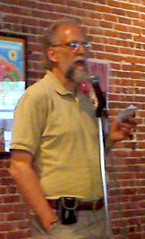David Rodock wrote in the VDT 14 July 2011, Industrial Authority welcomes new director,
That sounds like Industrial-speak for they’re going to “move on to” things that do work. However she chooses to phrase it, it’s about time.When it comes to the proposed biomass facility and maintaining a healthy relationship with the Georgia Department of Economic Development, which assisted the Industrial Authority in attracting the project, Schruijer believes staff and board members will be able to work through the situation.
“With economic development, it can be difficult to juggle a lot of different items,” said Schruijer. “It’s a balancing act to make sure you have all the parties involved and educated on the situation. The Department of Economic Development was there to help us recruit the project and they did just what they were supposed to do. In fact, they went above and beyond their duties by brushing over this project with a fine tooth comb. We worked with them and they worked with us. It seemed like a good project, and I think we’ll be able to work through this, maintain a good relationship with them as long as we keep the avenues for communication open.”
Regarding transparency: Continue reading














